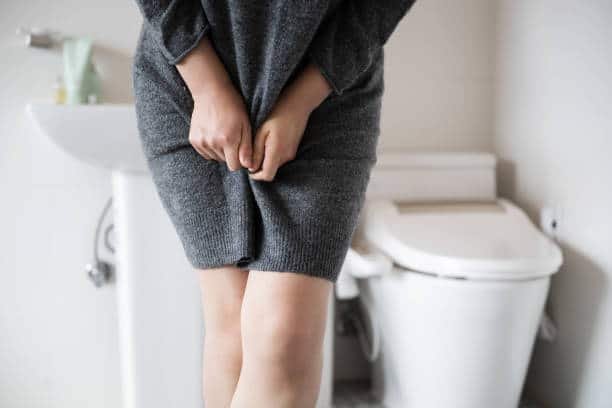The Surprising Connection Between Overactive Bladder and Dehydration
Having a bladder that’s too active (called Overactive Bladder or OAB) is a long-lasting issue. It can mess up your daily routine and even disturb your sleep. This can make you feel uncomfortable, sad, or stressed. Although there are treatments for OAB, finding the right one might take a while.
Dealing with an overactive bladder (OAB) can be tough, affecting different parts of your everyday life. Whether it’s running to the bathroom a lot or always feeling like you need to pee, folks with OAB often have to figure out how to handle their bladder issues while still staying hydrated. In this article, we’ll dig into the connection between an overactive bladder and dehydration, showing how these two things that might seem unrelated could be more linked than we realize.
Understanding Overactive Bladder:
Let’s talk about having an Overactive Bladder (OAB) in simple terms. It’s a medical thing where your bladder muscles squeeze without you wanting them to, making you feel like you really have to pee all of a sudden. This can make you go to the bathroom a lot, even when your bladder isn’t completely full.
Common symptoms of OAB include:
- Urgency: Suddenly feeling like you really have to pee right away.
- Frequency: Going to the bathroom more than usual, even at night.
- Incontinence: Accidentally leaking pee, especially when you feel the urgent need to go.
What causes OAB?
It can happen because of different things like getting older, having issues with your nerves, dealing with urinary tract infections, or going through hormonal changes. And it’s not just about your body; it can also affect how you feel and how you connect with others.
The Role of Fluid Intake:
Staying hydrated is super important for staying healthy, and it can help manage OAB. It might sound a bit strange, but not drinking enough can make your bladder issues worse. Some people with OAB try to drink less to avoid going to the bathroom a lot, but that can cause dehydration and more problems.
How Not Drinking Enough Water Can Affect OAB?
1. Drinking Less Water:
People with OAB might start drinking less water to avoid going to the bathroom often. Although it helps with the urgent need to pee, it can make them dehydrated over time. Dehydration happens when the body loses more fluids than it gets, messing up the balance needed for the body to work well.
2. Messing with the Bladder:
Being dehydrated can mess with how the bladder works. When the body lacks water, pee becomes more concentrated, irritating the bladder and making OAB symptoms worse. Dehydration can also lead to constipation, adding more pressure on the bladder and making OAB worse.
3. Meds and Dehydration:
Some medicines for OAB, like anticholinergics, can make dehydration more likely. These meds help relax the bladder muscles, but they might also affect how much moisture the body has. If someone notices signs of dehydration while taking OAB meds, it’s important to talk to their doctor about it.
Managing OAB and Staying Hydrated:
1. Smart Drinking:
Instead of completely avoiding drinks, folks dealing with OAB can be clever about when and how much they drink. It’s about spreading out sips throughout the day, especially when they’re not too active. This way, they can handle OAB without risking their body getting too dry.
2. Watch Your Hydration:
Keeping an eye on how much they drink and how much they pee can tell a lot about hydration. Checking the color of pee is an easy trick: light yellow means they’re hydrated well, but dark yellow or amber means they might be getting too dry.
3. Pick the Right Drinks:
Not all drinks are good for OAB. Caffeine and alcohol can bug the bladder and make OAB worse. Going for water, herbal teas, or watered-down fruit juices is a better idea. These can keep them hydrated without bothering their bladder too much.
4. Think About What You Eat:
Besides drinking, what they eat matters in handling OAB. Munching on fruits and veggies with lots of water is a plus for staying hydrated. On the flip side, cutting down on spicy foods, fake sugars, and acidic eats might ease up OAB symptoms.
Wrapping It Up:
Dealing with an overactive bladder is tricky, and the connection between OAB and not having enough water makes it even trickier. Many people with OAB try not to drink much, thinking it helps, but it’s crucial to find a middle ground that keeps the bladder happy and the body hydrated.
By being smart about how much and when to drink, keeping an eye on hydration levels, and making thoughtful food choices, folks with OAB can find the right balance. It’s like walking a tightrope between handling their symptoms and making sure they stay well-hydrated. Talking to doctors for personalized advice is super important to figure out a plan that works well for managing OAB in the long run.
Frequently Asked Questions:
1. Can having an overactive bladder make me dehydrated?
Yes, it’s possible. People with overactive bladders may limit their fluid intake to reduce bathroom trips, leading to dehydration over time.
2. How does dehydration relate to overactive bladder symptoms?
Dehydration can make urine more concentrated, irritating the bladder and potentially worsening overactive bladder symptoms such as urgency and frequency.
3. Are there specific beverages I should avoid to prevent dehydration with OAB?
Yes, it’s advisable to limit the intake of bladder irritants like caffeine and alcohol. Opting for water, herbal teas, and diluted fruit juices can help with hydration without exacerbating overactive bladder symptoms.
4. Can medications for overactive bladder contribute to dehydration?
Some medications, like anticholinergics commonly prescribed for overactive bladder, may have dehydration as a side effect. It’s crucial to be aware of potential side effects and consult with your healthcare provider if you notice signs of dehydration.
5. How can I monitor my hydration levels while managing overactive bladder?
Keeping track of fluid intake and paying attention to urine color is a simple way to monitor hydration. Pale yellow urine generally indicates proper hydration, while dark yellow or amber may suggest dehydration.
6. Is it possible to strike a balance between managing overactive bladder symptoms and staying hydrated?
Yes, adopting strategic fluid intake practices, making mindful dietary choices, and seeking personalized guidance from healthcare providers can help individuals with overactive bladder navigate the delicate balance between symptom management and proper hydration.


